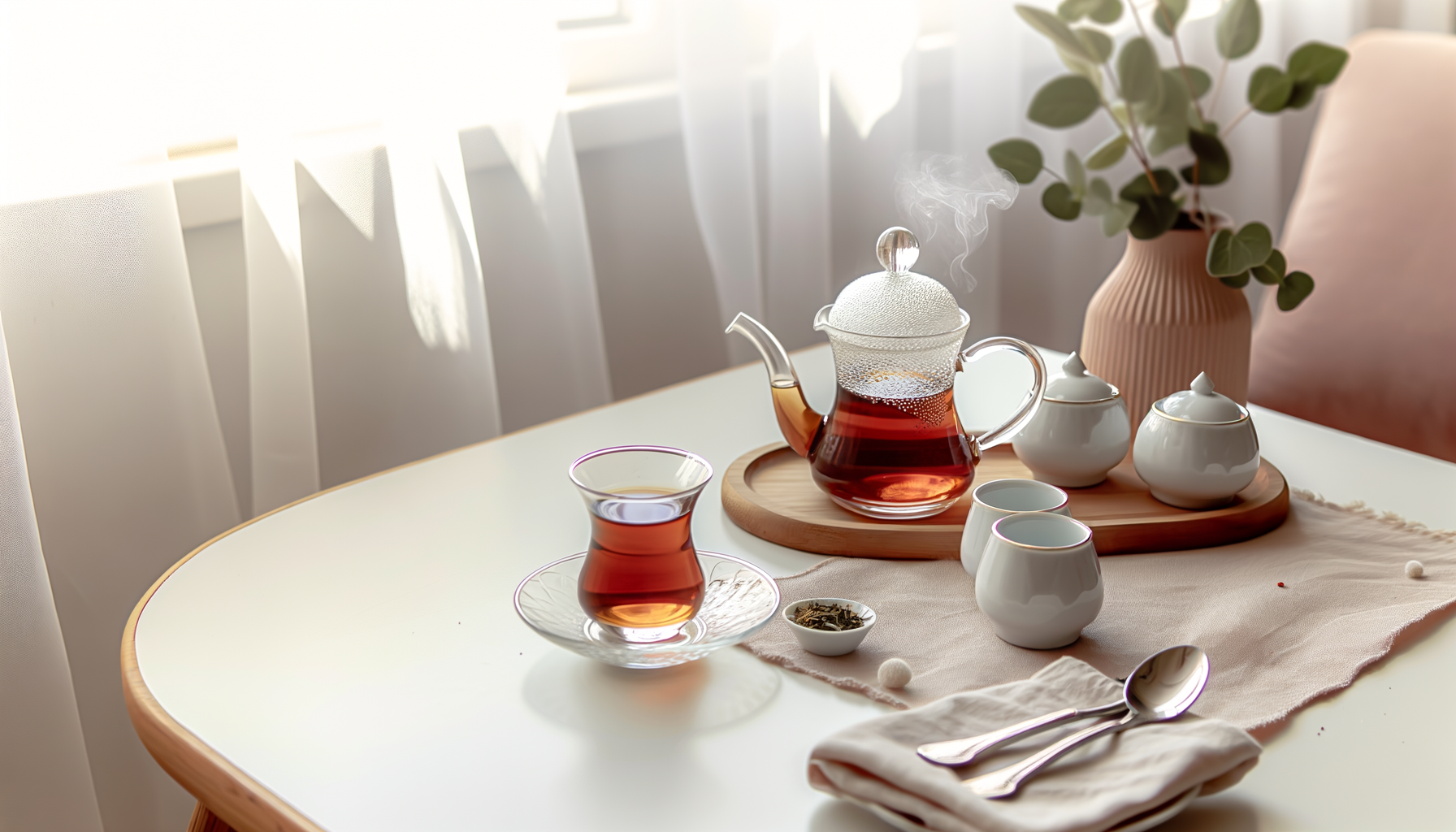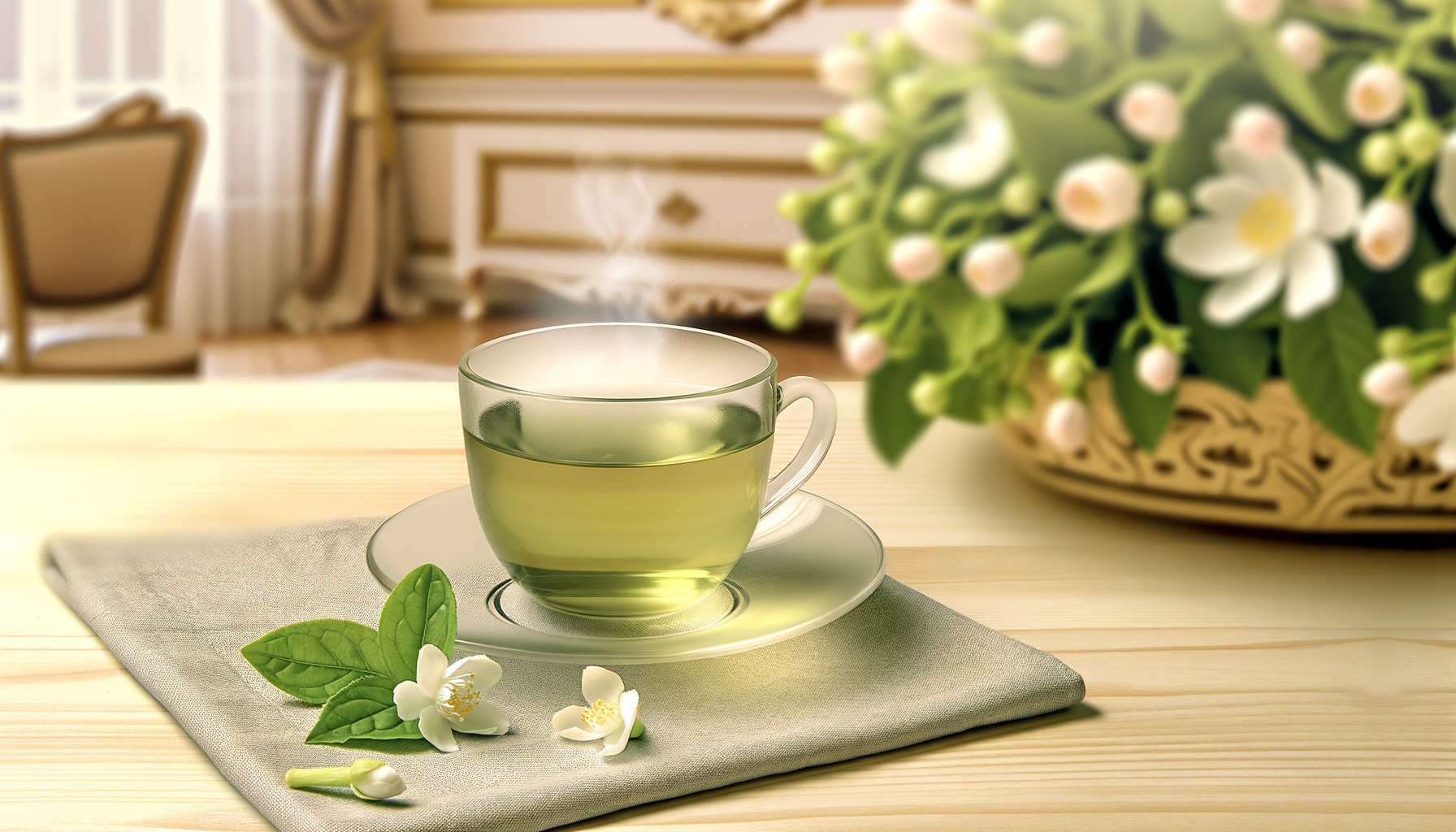
Liquorice Tea Health Benefits: Sip Your Way to Wellness
Ever wondered if your favorite sweet treat could actually be good for you? Enter liquorice tea – a delightful brew that's not just a treat for your taste buds but a potential powerhouse for your health. This ancient root, long revered in traditional medicine, is now making waves in the wellness world. Let's dive into the surprising ways liquorice tea could be your new go-to for both flavor and vitality.
What is Liquorice Tea?
Liquorice tea is a delightful herbal infusion that's been enjoyed for centuries. You might be surprised to learn that it doesn't actually contain any tea leaves! Instead, this aromatic beverage is made from the roots of the liquorice plant, scientifically known as Glycyrrhiza glabra.
The star of the show in liquorice tea is glycyrrhizin, a compound that gives the tea its distinctive sweet flavor. It's about 50 times sweeter than sugar! But there's more to this tea than just sweetness. It also contains flavonoids, plant sterols, and various minerals that contribute to its potential health benefits.
Brewing liquorice tea is a breeze. Simply steep dried liquorice root in hot water for about 5-10 minutes, and you're good to go. Some people like to mix it with other herbs or add a slice of lemon for an extra kick.
The Sweet Science: Nutritional Profile of Liquorice Tea
Let's dive into what makes liquorice tea a nutritional powerhouse. This herbal brew is packed with essential vitamins and minerals that your body craves. You'll find decent amounts of calcium, magnesium, and potassium in every cup.
But what really sets liquorice tea apart are its unique compounds. Glycyrrhizin, as we mentioned earlier, is the main player. It's accompanied by other beneficial substances like glabridin and licochalcone A, which have antioxidant and anti-inflammatory properties.
When compared to other herbal teas, liquorice holds its own. While it may not have the high antioxidant content of green tea, it offers a unique blend of compounds that you won't find in your average cuppa.
Boosting Immunity: Liquorice Tea as a Natural Defender
Now, here's where things get interesting. Liquorice tea isn't just a tasty treat – it's also a powerful ally for your immune system. The antiviral and antimicrobial properties of liquorice root have been studied for years, and the results are promising.
How does it work? Well, compounds in liquorice tea can help stimulate the production of interferon, a key player in your body's defense against viruses. This makes it a fantastic addition to your wellness routine, especially during cold and flu season.
In addition to fighting off invaders, liquorice tea may also help reduce inflammation in your body. This is crucial because chronic inflammation can weaken your immune system over time.
Digestive Harmony: Soothing Properties of Liquorice Tea
If you're prone to tummy troubles, you'll want to pay attention to this. Liquorice tea has a long history of use for digestive issues, and modern science is starting to back up these traditional claims.
One of the key benefits of liquorice tea is its ability to soothe the stomach lining. This can be particularly helpful if you suffer from acid reflux or ulcers. The tea's compounds can help reduce stomach acid production and protect the delicate lining of your digestive tract.
Furthermore, some studies suggest that liquorice tea might be beneficial for those with irritable bowel syndrome (IBS). While more research is needed, many people find that sipping on this sweet brew helps calm their digestive woes.
Respiratory Relief: Breathing Easier with Liquorice Tea
Let's take a deep breath and explore how liquorice tea can support your respiratory health. This herbal infusion has been used for centuries to soothe sore throats and ease coughs. But its benefits don't stop there.
Liquorice tea contains compounds that can help relax bronchial muscles, potentially making it easier to breathe. This could be particularly beneficial for those with asthma or seasonal allergies. Some studies even suggest that regular consumption of liquorice tea might help reduce the frequency of asthma attacks.
Compared to traditional cough syrups, liquorice tea offers a natural alternative without the drowsiness or other side effects often associated with over-the-counter remedies. Plus, it's a lot more enjoyable to sip on a warm, soothing cup of tea than to gulp down syrupy medicine!
Stress Less: The Calming Effects of Liquorice Tea
In our fast-paced world, finding ways to unwind is crucial. That's where liquorice tea comes in. This sweet brew might just be your new secret weapon against stress.
Here's the science behind it: Liquorice tea can help regulate cortisol levels in your body. Cortisol is often called the "stress hormone," and keeping it in check is key to managing stress. By supporting healthy adrenal function, liquorice tea may help your body respond better to stress.
But that's not all. Many people report feeling a sense of calm and well-being after drinking liquorice tea. While more research is needed, these mood-boosting properties make it a great addition to your relaxation routine.
Why not try incorporating a cup of liquorice tea into your evening wind-down? It's caffeine-free, so you don't have to worry about it keeping you up at night.
Women's Health: Liquorice Tea and Hormonal Balance
Ladies, this one's for you. Liquorice tea has some interesting potential benefits when it comes to women's health, particularly around hormonal issues.
For those going through menopause, liquorice tea might offer some relief. Some studies suggest that it could help reduce the frequency and intensity of hot flashes. It's also been linked to improvements in bone health, which is crucial during and after menopause.
When it comes to menstrual discomfort, liquorice tea might be your new best friend. Its anti-inflammatory properties could help ease cramps and other PMS symptoms. However, it's important to note that liquorice can affect hormone levels, so it's best to consult with your healthcare provider before using it regularly, especially if you have any underlying health conditions.
The Sweet Spot: Recommended Intake and Precautions
As with any good thing, moderation is key when it comes to liquorice tea. While it offers many potential benefits, it's important to consume it responsibly.
Most experts recommend limiting your intake to no more than 2-3 cups per day. This allows you to enjoy the benefits without overdoing it. If you're new to liquorice tea, start with one cup a day and see how your body responds.
It's also worth noting that liquorice tea can interact with certain medications and may not be suitable for everyone. People with high blood pressure, heart conditions, or liver disease should be cautious and consult their doctor before adding liquorice tea to their diet.
Pregnant women should also avoid liquorice tea, as it may increase the risk of preterm labor. If you're taking any medications or have any health concerns, it's always best to chat with your healthcare provider before making significant changes to your diet or supplement routine.
Conclusion
Liquorice tea offers a delightful blend of flavor and potential health benefits, from supporting your immune system to soothing your digestion. While it's not a cure-all, incorporating this sweet and soothing brew into your wellness routine could be a tasty way to boost your overall health. Remember, moderation is key, and it's always wise to consult with a healthcare professional before making significant changes to your diet. Why not brew a cup today and start exploring the benefits of liquorice tea for yourself?


